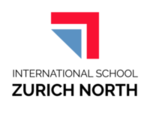Swiss education is free and compulsory. All children may attend school, including foreign children. Usually, compulsory education starts at the age of seven and lasts for nine years. Many children spend two years in kindergarten before starting school.
Swiss education is recognized throughout the world. Swiss students score higher skills on mathematics and science tests in comparison to students from other European countries.
The Swiss education system is largely decentralised and is managed by three political levels: federal, cantonal and municipal. The federal government oversees education nationwide and is responsible for enforcing school attendance. Because of the diversity of cultures and languages, however, each of the 26 cantons run its own education system.
Differences between cantons
Cantons have a large degree of autonomy in regards to their school systems. They choose the structure of their education system, the syllabus and the dates of holidays. The Conference of Cantonal Directors of Public Education tries to coordinate canton school systems, but its power to do is limited. The federal government and the cantons’ governments share responsibilities for higher education.
If your child is a student in the Swiss system, you may have trouble transferring him from one canton to another. Cantons may not have the same calendar, the same syllabus or teaching methods.
Several proposals have been made to standardize the Swiss education system. The cantonal education directors proposed a compulsory education system with two years of nursery school followed by nine years of school. However, only a few cantons have adopted reforms so far.
Another criticism of the education system in Switzerland is that school schedules are not convenient for working parents. There is a lack of “extended day” options, so parents must pick up their children from school at inconvenient times or pay nannies to do it for them.
There are no school uniforms in Switzerland, although the idea has recently been discussed.




